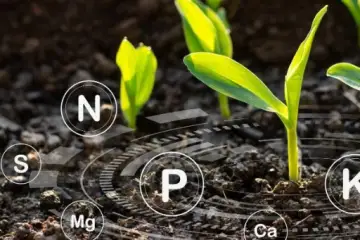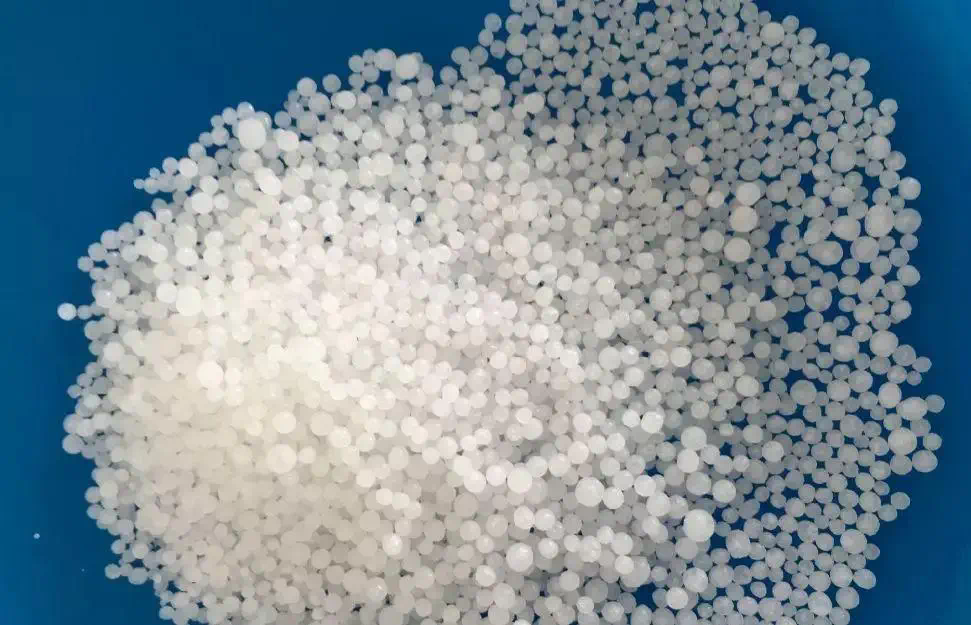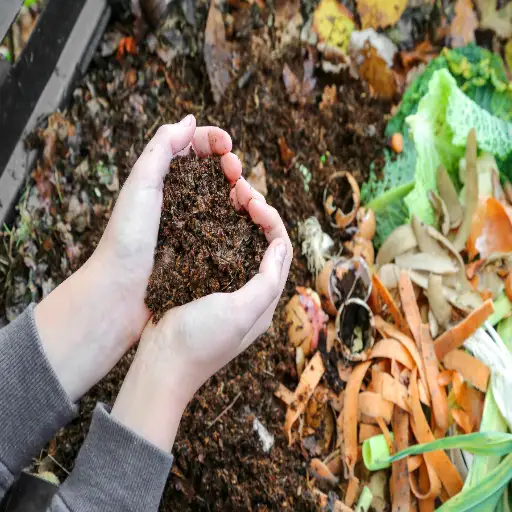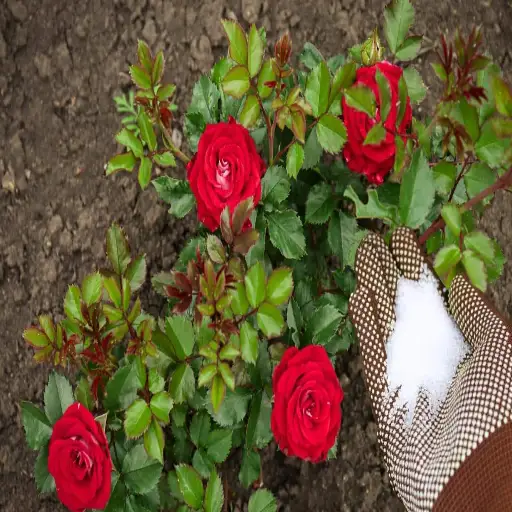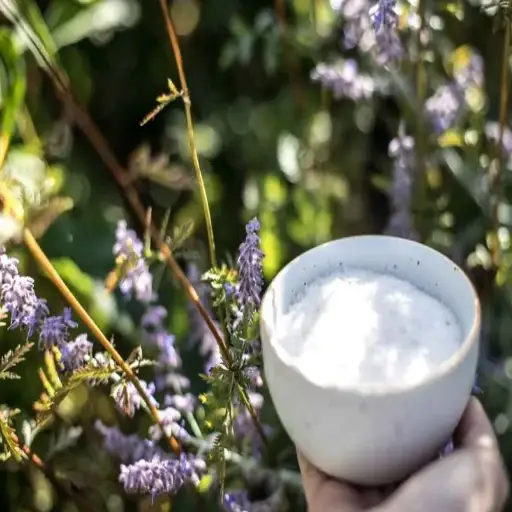Introduction to Citrus Tree Care
Almost everyone loves the sweet, fragrant blossoms and juicy fruits of citrus trees. These evergreen shrubs of the Rutaceae family benefit from warm conditions and can be found in various gardens worldwide – including the Mediterranean, South Africa and Australia. In the US, citrus trees are most commonly found in Florida and California. This family of plants includes several plant species such as the sweet navel orange, pummelo, Buddha’s hand citron, yuzu, papeda and the grapefruit. Different types of citrus trees have different needs to bear fruit.
One of the most important processes is the choice of organic fertilizer. Citrus trees are voracious feeders which require a balanced diet frequently in order to support their fast growth and high fruit yield. The best organic citrus fertilizer not only support plant vigour but also improve soil health, ensuring a sustainable ecosystem for the citrus tree. The right fertilizer is of vital importance to both the quality and quantity of the fruit yield as well as the growth and the overall health of the plant.
Understanding Fertilizers: Organic vs. Synthetic
Citrus growers must also decide which input to use: organic fertilizer or synthetic fertilizer. Both immediate and long-term tree health rely on this decision. Organic fertilizers come from natural sources such as plant residues, animal manures and mined minerals. They supply nutrients to citrus trees over the long term. They also break down slowly so nutrients are available as needed by the citrus tree. And they add organic matter that improves overall soil structure, increases moisture-holding capacity and fuels a diverse community of soil organisms.
The slow-release nature of organic fertilizer is especially important for citrus, whose roots need a steady supply of nutrients for flowering and general health. This is in stark contrast to synthetic fertilizers that are engineered for fast release. Although this can provide an immediate growth boost, synthetic products can lead to nutrient runoff and soil degradation and eventually lead to a loss in soil fertility. ‘Repeated application [of synthetic fertilizers] can severely disrupt soil biology and chemistry [leading] to reduced soil fertility and increased dependence on chemical additives,’ explains Dr Linda Chalker-Scott.
Thus the take-home message would be: based on these insights, it seems undeniable that the best fertilizer for citrus, not only to feed the tree but also in order to conserve and enhance the ecosystem of the soil, is organic. Organics are by far your best bet for sustainable citrus production.

Key Ingredients in the Best Organic Fertilizers for Citrus Trees
Since they cannot grow to their full potential with any one element, citrus trees need a balanced mixture of nutrients including nitrogen (N), phosphorus (P) and potassium (K), the NPK that are fundamental for their health and productivity.
Nitrogen is required for bounteous leafy growth and also for chlorophyll, the green pigment plants use to photosynthesise solar energy. Natural forms of nitrogen include blood meal, fish emulsion and composted manure, which provide a steady release of nutrients and avoid the sharp spikes associated with synthetic fertilizers.
This is what phosphorus is for: roots and flowers. Bone meal and rock phosphate are two of the most potent forms of organic phosphorus fertilizers around, bolstering root systems and the potential for heavy fruiting.
Potassium contributes to the general nutrition and health of the tree, including resistance to disease. It stimulates protein and photosynthesis synthesis, from which we can see why a potassium-rich plant-based fertilizer such as greensand or kelp meal is invaluable to healthy citrus.
Aside from the ‘big’ three of NPK, the most important secondary nutrients are calcium, magnesium and sulfur. Calcium helps strengthen the fruit’s cell walls, improving quality and storage life. Magnesium is found in the heart of the chlorophyll molecule, and so is essential for photosynthesis. Sulfur helps create vitamins and helps to keep plants healthy.
Providing these nutrients through the best organic fertilizer for citrus trees allows your citruses to have a healthy, sustainable and highly productive life, which also contributes to supporting the trees and the soil they grow in.
Top Organic Fertilizers for Citrus Trees
To pick the best organic fertilizer for citrus trees, it depends on the nutrients it contains and the organic sourcing of it. Below are some recommended fertilizers to consider, noted for their nutrient profiles and ease of application.
- Espoma Citrus-tone – Specifically designed organic fertilizer for all citrus and fruit trees. It has a very well-balanced N:P:K ratio, as well as a healthy amount of microbes for better nutrient uptake and soil structure.
- Dr. Earth Organic 9 Fruit Tree Fertilizer: This mix includes feather meal, fish bone meal, alfalfa meal, and kelp meal. It provides a good base of nutrients and is supplemented with probiotics to support healthy root growth and improve soil health. This would be an excellent choice for citrus trees.
- Neptune’s Harvest Fish & Seaweed Fertilizer: A typical fish/seaweed liquid fertilizer, high in nutrients, great for vegetative growth, and enhancing the taste in fruit due to the high micronutrient content.
- Jobe’s Organics Fruit & Citrus Fertilizer with Biozome: A granular, fast-acting organic fertilizer plus Jobe’s Biozome, which helps soil and roots thrive by supplying nutrients and increasing water retention. Comprised of beneficial bacteria, mycorrhizal fungi, and archaea, Jobe’s Biozome enhances nutrient availability and helps resist soil-borne diseases.
For those intrigued by the idea of creating their own blend, here are two DIY recipes for farmyard compost for citrus trees:
- Fish emulsion and seaweed mix: Combine one part fish emulsion with one part liquid seaweed in water. Use the resulting solution as a foliar spray or watering mix. Both fish emulsion and liquid seaweed are high in nitrogen and potassium, helping to thicken foliage and improve tree health.
- Compost and coffee grounds: Mix your homemade compost with coffee grounds on a four parts-to-one part basis. This slow nitrogen release improves soil structure too, which is beneficial for both young citrus trees and the soil in general.
These options bring nutrients to the citrus trees, nourish the soil ecosystem, and represent a traditional and sensible approach to gardening and agriculture.
Application Tips: How and When to Fertilize Citrus Trees
Just as important as selecting the right fertilizer for citrus is its application. Here’s how to make the most out of using organic fertilizer for citrus trees:
- Get It Right The First Time: Fertilize trees when they’re actively growing – typically early spring and late summer. Don’t fertilize citrus during late fall or winter, when they’re dormant. That growth appears in spring or summer, when the trees are resting.
Method of Application:
- Granular Fertilizers: Sprinkle organic granular fertilizers around the trunk of the tree at its drip line (the outer perimeter of the tree’s canopy where water drips off). This way, the nutrients remain in the ground, gradually decomposing and being absorbed by the roots as they penetrate and grow wider.
- Liquid Fertilizers: Liquid organic fertilizers can be applied with a watering can or hose-end sprayer. They provide a quick solution to uptake issues when trees show signs of deficiencies. Beware of leaf burn by applying liquid fertilizers only to the soil at the base of the tree, not to the foliage.
How Much: The manufacturer’s instruction will dictate how much fertilizer to apply (over-fertilization can hurt your trees), but generally speaking, younger trees need smaller amounts, more frequently, whereas more mature trees need greater amounts, less often.
If the fertilizer is in the form of granules, water the area thoroughly after application. This will help the fertilizer to dissolve and carry nutrients into the soil where they can be absorbed by tree roots.
If you follow our application tips and fertilization calendar religiously, your citrus trees will enjoy great health, with shiny leaves and vigorous growth, will provide more and larger fruit, and will earn you many thanks because you will be following the guidelines of sustainable gardening.

Monitoring Citrus Tree Health and Adjusting Fertilization
Monitor your citrus tree’s health to make sure it is getting the proper amount and type of nutrients from the best organic fertilizer for citrus trees. Here is how to recognize signs of nutrient deficiencies and adjust fertilization strategies accordingly:
Signs of Nutrient Deficiencies:
- This deficiency reveals itself in yellowing foliage, usually beginning with the older leaves, especially if new growth is pale.
- Deprivation of phosphorus may cause leaves to appear darker green or even purplish, especially on the edges of the leaf veins, and inhibit root development.
- Leaves turn yellow at their edges and may start to curl as the plant attempts to conserve water. They may also become brittle or crispy. A potassium deficiency is indicated by a yellowing of the top of the plant and the middle of its leaves.
Over-fertilization Symptoms: Salt accumulation in the soil may result in leaf burn and, if it is severe, could be a problem. It can even affect fruit quality and reduce disease resistance by interfering with how plants use nutrition. Another indication of too much fertilizer is very lush foliage but low fruit production.
Adjusting Fertilization Strategies Based on Tree Health and Soil Tests:
- Conduct tests on a regular basis to determine levels of nutrients in the soil and the pH, both of which influence the availability of nutrients to plants and should inform your fertilization program.
- If shortages are identified, increase the rate or frequency of applications of organic fertilizer, particularly if the crops are suffering from a particular lack. If nitrogen is deficient, for example, you might need to increase the proportion of nitrogen in the fertilizer you’re applying.
- Conversely, if signs of excessive fertilization are present, use less fertilizer and extend application intervals. Introduce more irrigation to leach out excess nutrients, particularly salts, from the soil.
You continue to check your citrus grove regularly and adjust your fertilizer practices as necessary so that the trees stay healthy and bear an abundant crop. This proactive effort not only boosts crop yield for your citrus trees but also promotes the sustainability of your home’s ecosystem.
Conclusion: Maximizing Citrus Tree Health with Organic Practices
In other words, the best organic fertilizer for citrus trees is the most careful selection of the appropriate item and the proper application. It is exactly because of the use of organic fertilizers that gardeners can bring their citrus trees with enough essential nutrients to growth healthily and mitigate pollution, ensuring a sustainable and healthy ecoystem in the garden.
Organic fertilizers keep the soil in a biologically active and fertile state which is the key to developing a healthy garden for the long run. It improves the soil structure for water-holding capacity and increases the biological activity required for nutrient uptake and disease resistance. When use of organic fertilizers follows the guidelines for correct application and you monitor the health of your tree regularly, you are less likely to make common mistakes such as nutrient deficiencies and over-fertilisation.
To sum up, organic gardening is praiseworthy for several reasons.First, it shows the gardener’s great responsibility – anyone who cultivates their citrus trees organically must be good at it.They know how to give the right nutrition to their plants.Second, choosing organic gardening demonstrates a growing concern for environmental protection. Organic gardening is about the choices you make for your citrus trees, but also for the environment more generally.If you plant organic fertilizer for your citrus trees and practice organic cultivation, you will conserve the resources of our planet and relinquish healthy plants and environment to our next generation.
With proper tending and in a context of sustainability, your citrus trees will offer high yields of delicious tasting fruits while remaining virtuous members of your garden ecosphere. Happy gardening!
Here are three recommended organic fertilizers for citrus trees based on current online resources:
- Down to Earth Organic Citrus Fertilizer Mix (6-3-3) – This is a well-regarded organic option that is OMRI listed, making it suitable for use in organic gardening. It includes a balanced blend of nitrogen, phosphorus, and potassium, as well as important micronutrients like zinc, iron, calcium, and sulfur, which are essential for the healthy growth of citrus trees. This fertilizer promotes robust plant growth, fragrant blossoms, and plentiful fruit production. It’s available in both one and five-pound boxes .
- Jobe’s Organics Fruit & Citrus Fertilizer with Biozome (3-5-5) – This fertilizer is praised for its fast-acting formula that enhances soil conditions and promotes healthy growth of citrus trees. It’s 100% organic and includes Jobe’s Biozome, a unique blend of beneficial microorganisms that improve long-term soil quality and increase resistance to disease. This product is particularly effective for both new and established trees, supporting better fruit quality and healthy blooms .
- Espoma Citrus-tone Plant Food (5-2-6) – This product is designed specifically for citrus and other fruit trees, providing a slow-release formula that nurtures root, foliage, bloom, and fruit development. The inclusion of live microbes makes it a great choice for organic gardening. Espoma Citrus-tone is noted for encouraging flavorful citrus fruits and is well-suited for both in-ground and potted trees .


